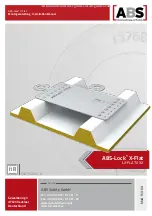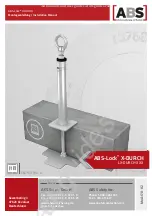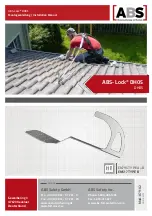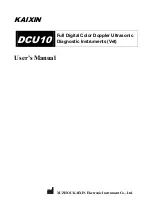
A.T.S. 3000 AUTOMATIC TOURNIQUET SYSTEM
28
5.
Push the fuse drawer into the power entry module
until the fuse drawer locks into place (an audible
click will be heard).
6.
Reconnect power cord to power entry module, plug
in to AC and verify device AC power is active.
3.9 UNSCHEDULED MAINTENANCE
The
A.T.S.
3000 Tourniquet is designed with several specific
self-test features to assist in fault isolation. These features
are designed to show messages in the Pressure and Time
displays. The meanings of these messages are delineated in
Tables 2.1, 2.2 and 2.3.
Another mode of failure that may occur is when an audible
alarm occurs that cannot be silenced by the ALARM
SILENCE button. The valves and pump will be disabled
which seals off the cuff to prevent pressure loss. The
displays may show random characters. Should this occur, the
watchdog timer circuit of the safety processor has detected a
problem. The microprocessor may not be executing reliable
instructions and is not able to display the correct failure
message. The unit should be serviced if this occurs.
The calibration error message “CAL” “FAIL”, “CAL M”
“FAIL” or “CAL 2” “FAIL” may be due to defective circuitry
or may simply indicate the need for calibration.
3.10 TROUBLE SHOOTING GUIDE
To aid in unscheduled maintenance, Table 3.2 delineates a
number of possible malfunctions that could occur with the
unit. The most likely causes are shown for each symptom.
While it is not practical to enumerate every conceivable
malfunction and all possible causes, the table will assist in
isolating the most common problems.
3.11 EXPECTED TEST POINT READINGS
To expedite unscheduled maintenance, Table 3.3, Expected
Test Point Readings, has been incorporated into this manual.
This table, as well as Table 3.2, Troubleshooting, should
give a qualified technician a good starting point from which
to locate and repair most problems that could occur during
the life of the unit. Unless noted, all measurements are to
be made at room temperature with the cuffs disconnected,
and the unit
plugged in.
All voltage measurements are with
respect to ground and are to be made with the unit ON.















































